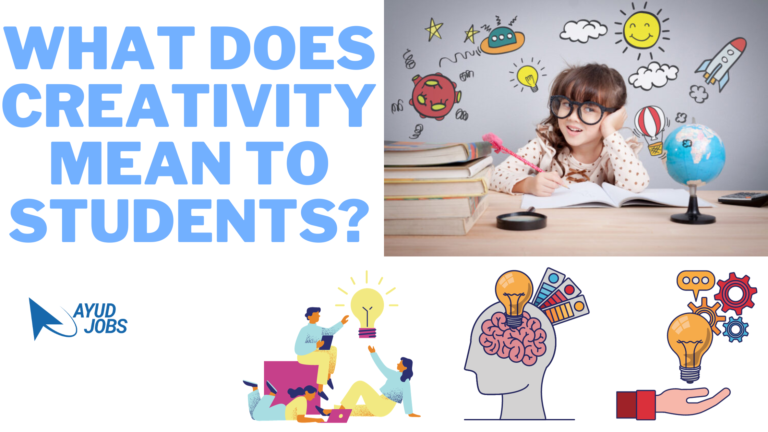The Importance of Self-Study and How to Adopt It
Introduction: The Power of Self-Study
Self-study is a crucial element of personal and academic growth. It allows you to explore topics at your own pace, dive deeper into areas of interest, and develop a strong sense of responsibility and independence. The Importance of Self-Study and How to Adopt It. In today’s fast-paced world, where information is readily available, the ability to self-study is more important than ever.
This blog will explore the importance of self-study, provide practical steps on how to incorporate it into your routine, and share tips for making self-study an enriching and fulfilling experience.
Why is Self-Study Important?
1. Enhances Personal Accountability
Self-study promotes personal accountability. Instead of relying on external sources such as teachers or structured classes, you take control of your learning. This fosters discipline, motivation, and a proactive mindset.
2. Develops Critical Thinking Skills
When you engage in self-study, you often face challenging problems or concepts. You are responsible for finding solutions or comprehending those ideas, which enhances your critical thinking skills. This independent thinking also helps in real-world problem-solving.
3. Encourages Exploration and Creativity
Traditional learning often follows a fixed curriculum. Self-study, on the other hand, lets you explore topics that interest you. Whether it’s mastering a programming language or learning about ancient civilizations, self-study enables creative exploration and helps you discover your passions.
Real-Time Example Story: A Student’s Journey to Mastery
Neha, a computer science student, struggled with her course initially. While her lectures were comprehensive, she often found herself confused and overwhelmed by the fast pace. She decided to start self-studying, dedicating two hours every day after her classes. Gradually, she began understanding complex topics at her own pace, practicing them, and exploring additional resources online. Within a semester, she moved from being an average student to excelling in her coursework.
Self-study helped Neha not only academically but also personally. She gained confidence in her abilities, developed a sense of responsibility, and learned the importance of taking ownership of her education.
How to Adopt Self-Study Effectively
1. Set Clear Goals and Objectives
The first step in adopting self-study is to set clear goals. Ask yourself:
What do you want to achieve through self-study?
Do you want to gain more knowledge in a specific subject or develop a particular skill?
Having defined objectives will help you stay focused and motivated.
2. Create a Structured Study Plan
A well-structured study plan is essential for successful self-study. Break your goals down into smaller tasks and set aside specific times each day for studying. A routine not only brings discipline but also makes learning a habit. Use tools like calendars, to-do lists, or study apps to organize your schedule.
3. Find Reliable Learning Resources
The internet is a treasure trove of information, but it’s essential to use reliable resources. Look for credible websites, books, and tutorials that can provide you with accurate and up-to-date information. You can explore educational platforms like Coursera, Khan Academy, or even YouTube channels dedicated to learning.
4. Develop a Distraction-Free Environment
One of the biggest challenges in self-study is staying focused. Create a study environment that minimizes distractions. Turn off notifications on your devices, and find a quiet space where you can focus on your work without interruptions. If you’re studying online, consider using apps like StayFocusd to limit access to distracting websites.
5. Practice Active Learning
Active learning involves engaging with the material rather than passively consuming it. Some effective methods for active learning include:
Taking Notes: Write summaries or make mind maps as you study.
Teaching Others: Explaining concepts to someone else helps reinforce your understanding.
Self-Testing: Regularly quiz yourself on what you’ve learned to identify gaps in your knowledge.
6. Stay Consistent and Reflect
Consistency is key in self-study. You might not notice immediate results, but small, regular efforts lead to significant improvements over time. Regularly reflect on your progress and adjust your study techniques as needed.
Overcoming Challenges in Self-Study
1. Lack of Motivation
Self-study requires intrinsic motivation, which can wane over time. To stay motivated, remind yourself of your goals, reward yourself for progress, and keep your study sessions varied and engaging.
2. Time Management Issues
It’s easy to procrastinate or waste time during self-study sessions. Implement time management techniques such as the Pomodoro Technique, where you study in focused intervals of 25 minutes followed by a 5-minute break. This helps improve focus and productivity.
3. Information Overload
With so much information available, you can easily feel overwhelmed. Stick to your goals and study plan to prevent this. Focus on learning what is necessary before diving deeper into other areas.
How Self-Study Impacts Life: A Personal Growth Tool
Self-study doesn’t just improve academic performance—it shapes personal growth. It teaches discipline, enhances decision-making skills, and fosters self-reliance. Whether you’re learning a new language or mastering a technical skill, the ability to study independently empowers you to face challenges, adapt to changes, and continuously evolve.
7. Use Technology Wisely in Self-Study
Today’s technology can significantly enhance your self-study experience. From online courses to learning apps, using the right tools can make studying more interactive and efficient. Educational platforms like Udemy, Coursera, and Khan Academy provide high-quality material on various subjects. Tools like Anki (for flashcards) or Notion (for organization) can make self-study more structured and fun.
Self-Study in the Digital Age
In the age of information, self-study is more accessible than ever. From online libraries to virtual study groups, learners can now tap into vast resources from the comfort of their homes. With tools like digital notebooks, interactive e-learning courses, and mobile apps, studying has become more flexible and engaging.
Conclusion: Adopting Self-Study for Lifelong Success
Self-study is an invaluable skill that not only helps you excel academically but also fosters independence, curiosity, and a lifelong love of learning. By setting clear goals, creating a structured study plan, and consistently reflecting on your progress, you can unlock your potential and make self-study a powerful tool in your personal and professional life.
Adopting self-study might seem challenging at first, but the long-term benefits far outweigh the initial struggles. Like Neha’s journey, with dedication and the right approach, anyone can master the art of learning independently.
Start your self-study journey today and see how it transforms your life!
#SelfStudySuccess #IndependentLearning #StudySkills #SelfMotivation #ActiveLearning #TimeManagementInStudies #ayud #ayudjobs #askayud #MultiLanguageSupport #ResumeBuilder #gotestit #ayudian #ayudblog #ayudcareer
How to Use Ayud : A Comprehensive Guide
Join our what’s app channel for timely updates







